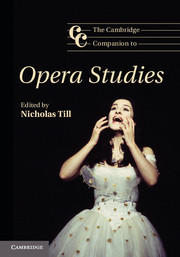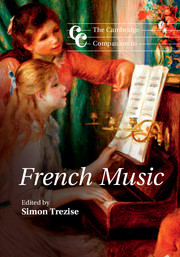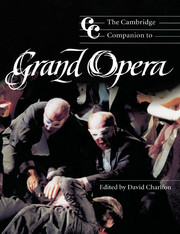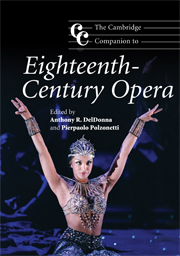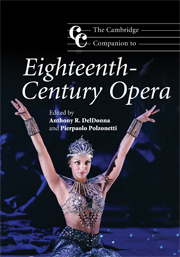The Cambridge Companion to Opera Studies
With its powerful combination of music and theatre, opera is one of the most complex and yet immediate of all art forms. Once opera was studied only as 'a stepchild of musicology', but in the past two decades opera studies have experienced an explosion of energy with the introduction of new approaches drawn from disciplines such as social anthropology and performance studies to media theory, genre theory, gender studies and reception history. Written by leading scholars in opera studies today, this Companion offers a wide-ranging guide to a rapidly expanding field of study and new ways of thinking about a rich and intriguing art form, placing opera back at the centre of our understanding of Western culture over the past 400 years. This book gives lovers of opera as well as those studying the subject a comprehensive approach to the many facets of opera in the past and today.
- Provides a definitive resource for teachers and students studying opera in music, theatre and cultural history
- Introduces key theoretical and methodological approaches supported by concrete examples
- Clearly identifies the different aspects of the expanded field of study in opera today
Reviews & endorsements
"In both the clarity of its organization and the uniformly high standard of the individual essays, this is an outstanding collection."
The Times Literary Supplement
"[Opera studies] is inherently interdisciplinary, which necessitates a wide range of critical approaches … The essays deal with such varied topics as politics, the state, and society; gender, nationalism, and exoticism; and technologies of theatrical productions, including the movie and live streaming on the internet … Recommended."
Choice
"This is another useful addition to the Cambridge Companions to Music series, this time covering an area of music which has received less scholarly attention than others until the second half of the twentieth century … This is a scholarly book for the undergraduate or postgraduate student … although some opera fans of a more academic bent might find it of interest."
Stella Thebridge, Reference Reviews
Product details
November 2012Hardback
9780521855617
364 pages
253 × 180 × 21 mm
0.86kg
Available
Table of Contents
- Introduction: opera studies today Nicholas Till
- Part I. Institutions:
- 1. Opera, the state and society Thomas Ertman
- 2. The business of opera Nicholas Payne
- 3. The operatic event: opera houses and opera audiences Nicholas Till
- Part II. Constituents:
- 4. 'Too much music': the media of opera Christopher Morris
- 5. Voices and singers Susan Rutherford
- 6. Opera and modes of theatrical production Simon Williams
- 7. Opera and the technologies of theatrical production Nicholas Ridout
- Part III. Forms:
- 8. The dramaturgy of opera Laurel E. Zeiss
- 9. Genre and poetics Alessandra Campana
- 10. The operatic work: texts, performances, receptions and repertories Nicholas Till
- Part IV. Issues:
- 11. Opera and gender studies Heather Hadlock
- 12. Opera and national identity Suzanne Aspden
- 13. 'An exotic and irrational entertainment': opera and our others, opera as other Nicholas Till.

